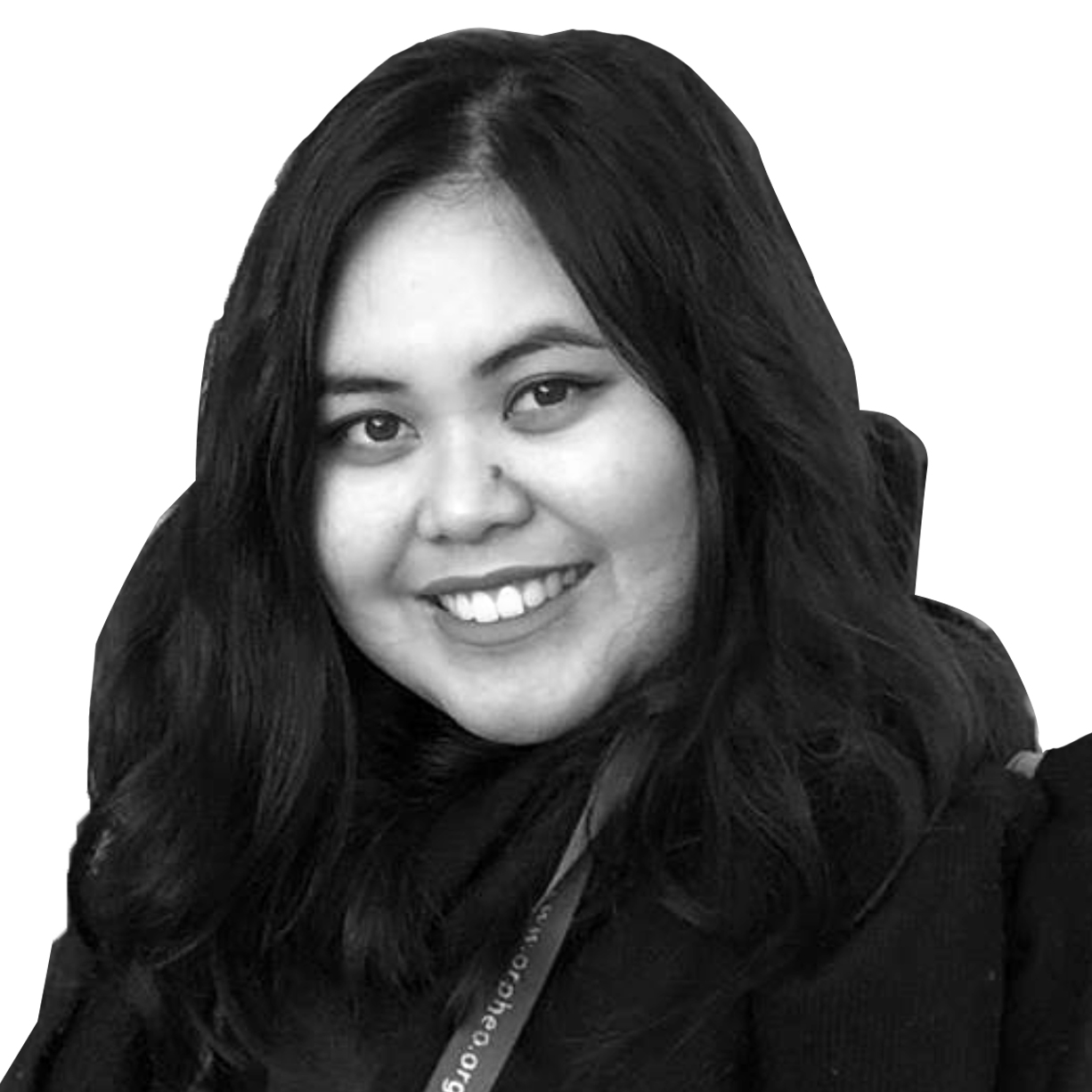He once called himself the “Math Guy,” Politico labeled him the “most prominent Asian American political figure in the country,” and now he can add “comedian” to the list. He is Ziwe’s latest “iconic” guest: Andrew Yang.
In the third episode of Ziwe Fumudoh’s Showtime series, titled “Wealth Hoarders,” Yang appears from inside a campaign office in his so-far successful campaign for New York City mayor. There’s a reason the former presidential candidate and current New York City mayoral candidate is joining the new show in the spirit of previous “iconic” guests like Caroline Calloway and Alison Roman.
If you’re unfamiliar with Ziwe’s line of questioning, you need only watch the first minute of Yang’s interview with her: “Who are your top four billionaires?” she asks him. Yang immediately answers “Michael Bloomberg” before listing three or four other popular and famous people of color (including Oprah because “she seems tremendous”) who probably also have a ton of money. Just like the promotional clip posted by Ziwe on Twitter, in which Yang struggles to name a Jay-Z song after claiming to like hip-hop in the ’90s and ’00s, his answers are indicative of his propensity to pander inauthentically to non-white people. For the record, he did name a couple of Jay-Z songs eventually… “Encore” and “‘Ninjas’ in Paris.” Take from that what you will.
Ziwe’s subtle roast began before Yang was even introduced on camera. In a skit parodying wealthy businessmen-turned-politicians, she says, “This isn’t about whether I win or lose, it’s about boosting my profile. So vote for me, or don’t.” It’s a common critique of wealthy men who have used their riches to run vanity campaigns, including Yang, even though he is apparently not as rich as we originally thought. But while viewers (both supporters and haters) might not find the ultimate viral “gotcha” moment they were looking for in the episode, it’s what Yang refused to say in his eight-minute interview that was ultimately more striking.
The first real dig at Yang begins when Ziwe cites the multiple jokes he made during his 2020 presidential campaign using nerdy stereotypes related to his Asian identity. Ziwe asks: “Have you been a comedian all your life or is this a newfound passion?” He responds that it’s “new,” then in a roundabout way explains how he wasn’t anything like those stereotypes at all growing up, but rather an angsty Asian skater boy who at one point also became a gym buff. Still, Yang has since embraced the idea of the model minority, making his identity as an independent, wealthy, entrepreneurial, non-establishment Asian American candidate from New York the mainstay of his brand.
Next question: “What are your favorite racial stereotypes?” A question he seriously answers by saying, “I guess I’ve gotta stick to the Asian ones,” before stating that Asians love food, bubble tea, and are scared of their parents. The guy who “knows a lot of doctors” and “likes tests,” as Ziwe reminds us that Yang has joked on the campaign trail, wanted to stick to the benign stuff in his answer. Nothing about “being good at math” or any of the problematic clichés that somehow worked fine as the centerpiece of his presidential campaign.
If he is going to buy into stereotypes, next time he should say that Asians love watching baseball. It would fall in line with his own advice from a Washington Post op-ed about making us “part of the cure” by engaging in more “American” activities to prove we are not to blame for COVID-19.
By the end of the interview, Yang doubles down on his commitment to increasing the police presence on New York City subways, refuses to take a stance on apartheid (I guess that’s controversial now?), and essentially dodges the “should billionaires exist?” question. His answers are all reflective of qualities that previously earned him the praise of former White House speechwriter and generally repulsive human being, Stephen Miller.
If a white nationalist best known for caging brown babies in steel refrigerators says that you’re doing things right, then you might want to take a step back and ask yourself: what the hell am I doing wrong? Yang has not come out and condemned Trump’s immigration czar or his support, an extremely easy and politically expedient thing to do.
Ziwe asks Yang at one point: “How can voters trust you to run New York when you can’t even stay loyal to a basketball team?” Good for the Knicks, because Ziwe could easily have stopped at “How can voters trust you?”
How can we trust someone who sold out his own with Asian stereotypes to carry on a doomed campaign, at a time when these stereotypes directly affect society’s perception of us, often isolate the most vulnerable within our communities, and are a major reason for why we’ve become the target of hate crimes and racially-motivated attacks? How can we trust someone who, when faced with news of Palestinian civilians being disproportionately killed in Israeli airstrikes, chose to “stand with our brothers and sisters in Israel who face down terrorism”? How can we trust someone who proclaims his desire to be the “anti-poverty mayor” but would use his universal basic income plan to dismantle existing social safety net structures?
But perhaps more importantly: How can New Yorkers trust someone whose favorite subway station is the one in Times Square?

